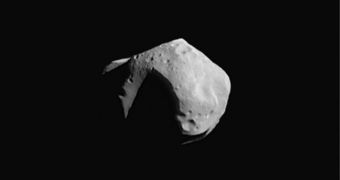Researchers, space experts and space agencies from many countries are currently working together to create a high-level Mission Planning and Operations Group (MPOG), which will act as a task force meant to coordinate a global response in the event that a near-Earth object (NEO) is heading our way.
Over the past couple of years, experts have been drawing attention to the thousands of NEO that exist around Earth. This is not a final number, but rather an estimate based on how many hidden space rocks orbital telescopes found.
In reality, the number of asteroids, meteorites and other objects located in Earth;s surroundings could be considerably larger. The world needs to be prepared to face the consequences of an impact, or of a direct threat.
The purpose of the MPOG will be to coordinate the international response of all nations to a potential announcement that a space rock is heading our way. Immediate actions would need to be taken instantly in such a circumstance, and analysts have been rooting for a centralized authority to take charge of this for some time now.
At recent astronomy workshops, scientists have been calling for the establishment of a planetary defense network against any potential NEO threat. Studies have already tracked down several possible scenarios.
During a new workshop, representatives from numerous space agencies agreed that the MPOG needs to be formed, and that its capabilities need to be augmented with an Information Analysis and Warning Network (IAWN).
Space planners and former astronauts met to discuss NEO-related issues at the European Space Operations Center (ESOC), a facility operated by the European Space Agency (ESA). The meeting took place October 27-29.
The Association of Space Explorers and Secure World Foundation and ESA worked together to organize the MPOG workshop, Space reports. The meeting was led by former Apollo astronaut Rusty Schweickart.
“It was the first face-to-face meeting of representatives from space agencies wrestling with the tough geopolitical and technical issues which they will face when we're confronted with an actual impact threat,” he said at the conference.
The establishing of MPOG “really has to be a collective decision, since, in the deflection process, there will be a trail of nations across which the impact point moves as we shift it off the Earth,” he added.
Over the last decade or so, numerous research groups have researched and proposed initiatives of how the world should handle a potential threat of this nature. Ideas range from blowing the space rocks up to changing their courses.

 14 DAY TRIAL //
14 DAY TRIAL //